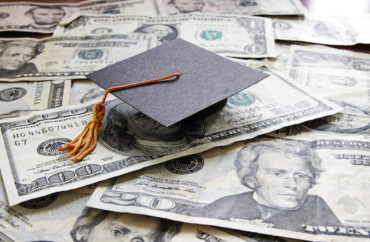
Parents are quietly building up a huge alternative to public schools
American public education is so hard to reform because of its great size. The economy of K-12 education here is bigger than some countries, and we’re not talking rinky-dink countries either.
“Federal, state, and local governments spend $720.9 billion, or $14,840 per pupil, to fund K-12 public education,” reports the website Education Data.
By contrast, the annual gross domestic product of oil giant Saudi Arabia in 2017 was only $687 billion, according to World Bank statistics. That same year, Switzerland, with its banks, watches, cheese, and army knives, raked in only $679 billion.
The crowdfunding website GoFundMe brags that it raises over $70 million a year for education initiatives. I don’t want to discount these efforts. They certainly make a difference in individual cases. Some children have school supplies that they wouldn’t have had because of those campaigns and a few Catholic schools have kept their doors open. These are all good things.
But in the larger economy of American education, $70 million is a drop in the bucket, a few grains of sand on a beach, a rounding error.
When a funding source throws in multiple billions of dollars, and preferably tens of billions, then it might make a difference — provided the money is well targeted and can renew over multiple years.
Now that you can see where I’m coming from, let me share with you a line from a recent report on the state of education. It really spoke to me. And what it said was, “Hey, Mr. Know-It-All Skeptic, pay attention. This is too large of a thing for you to write off.”
The report was by the education consulting firm Tyton Partners and funded by the Walton Family Foundation. Tyton found that American households last year “spent an estimated $20 billion more on an annualized basis on education-related activities.”
What the $20 billion figure tells us is that American families showed up to play.
It was an unbelievably tough year, with a global pandemic, lockdowns, job losses, riots, and a fractious presidential election. Families were struggling in many ways, only one of them being financially.
In the midst of all that, countless parents decided that since schools were showing that they weren’t really capable of educating their children under such circumstances, they were going to have to personally step up.
Homeschooling had been basically stalled as a percentage of the school age population when COVID landed in America. Last year, it at least doubled. By the time all of the public school “dropouts” are accounted for, it may have closer to tripled.
Similarly, if experts are finding $20 billion on an annualized basis in additional spending by parents, that is likely an undercount.
What are they spending all that money on? Well, books, for one, and curriculum. Tyton found that a lot of money went to “learning pods.” These are “Learning environments in which small groups of school-age are educated together at a child’s home, a shared workspace, or a school building or community center.”
The Tyton report says that these pods are supplemental to formal education, and that can be the case. Yet pods are rising in tandem with an explosion of homeschooling, at the same time that both public and private school enrollments have plummeted.
In fact, many homeschoolers are making use of pods and also “microschools” to make up for deficiencies in the parent-teachers’ knowledge and to allow for that thing homeschoolers are always criticized for lacking: socialization.
These are the beginnings of a huge alternative architecture for education in this country that could force public education to bend to retain students. Unless public schools show up to play in the next school year, it’s likely to get a whole lot bigger.
MORE: Harvard’s attack on homeschooling (and Christian parents) is maliciously false
IMAGE: zimmytws / Shutterstock.com
Like The College Fix on Facebook / Follow us on Twitter







Please join the conversation about our stories on Facebook, Twitter, Instagram, Reddit, MeWe, Rumble, Gab, Minds and Gettr.